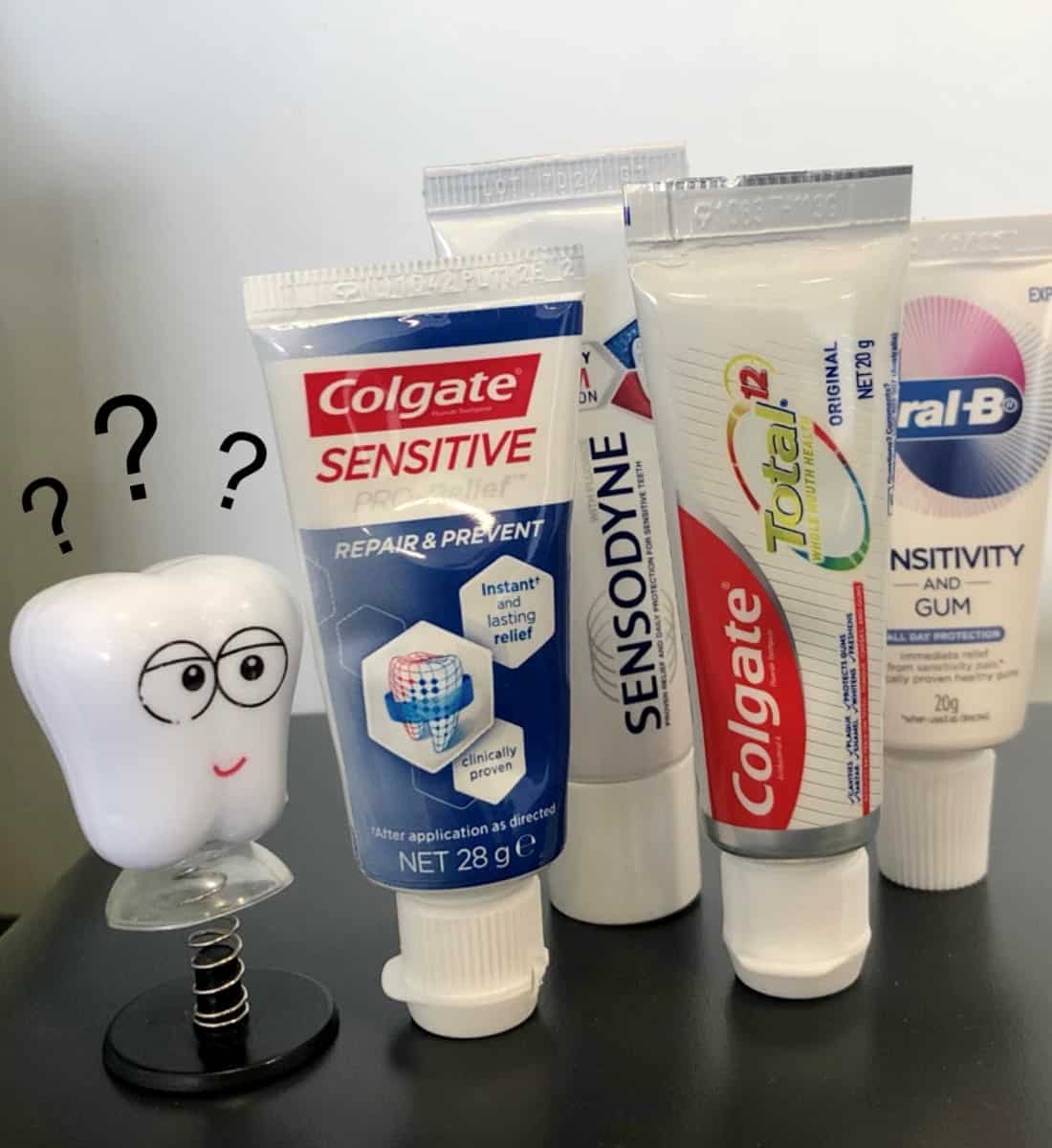Which toothpaste is best for me?
Toothpaste was first created in the 1800’s. Today there is a wide range of toothpaste varieties to choose from off the shelf at your local supermarket or chemist. So how do we know what toothpaste is best? There are many brands like Colgate, Oral B and MacLean’s just to name a few. Many also have formulas to target certain dental concerns including staining, sensitivity, tartar control, herbal or natural alternatives and also children’s specific toothpaste. With all the options it may make it difficult to decide what toothpaste you should be using as part of your regular oral hygiene regime.
Whitening
Whitening toothpastes assist with removing dental stains caused by smoking, tea, coffee or soft drinks. Teeth-whitening toothpaste contains a more abrasive cleanser in it that helps eliminate or reduce these stains. If using these abrasive ingredients for prolonged periods it can cause damage to your enamel. It is advised when using whitening toothpaste to only use it for a short duration of time. Choosing to use a standard toothpaste when brushing your teeth twice a day is much safer for your enamel and will avoid causing long term damage and wear to your teeth.
Sensitive toothpaste
If hot or cold foods cause tooth sensitivity, then the option to use sensitive toothpaste might be for you. Sensitive toothpaste contains potassium nitrate which helps to soothe tooth sensitivity pain and acts like a barrier to block the channels leading to sensitive nerves in your tooth. Over time, these products can build a longer lasting protective barrier that acts like a seal against sensitivity. Sensitive toothpaste can be used as your regular toothpaste when brushing your teeth, or it can also be placed specially on to the sensitive area for a more targeted affect.
Tartar Control
When brushing your teeth our aim is to remove all of the plaque that builds up on our teeth. Plaque is a bacteria that is constantly forming no matter how often we brush or the foods we do or don’t eat. Over time plaque will accumulate, and if not removed by brushing it will turn into hard tartar. This tartar then can only be removed specially by a dentist, and can cause further oral health issues
like decay and gum disease if it progresses and is left untreated. There are toothpastes formally designed to help decrease tartar build up or also known as tartar control toothpastes.Tartar control toothpastes are a preventative tooth paste that can be beneficial along with regular dental checkups and professional cleaning to remove any tartar build up that cannot be removed with daily brushing.
Natural toothpaste
Herbal or natural toothpaste are the best option for individuals who find they are sensitive to the ingredients used in standard toothpaste. However, most of these toothpastes do not contain fluoride which is highly recommended by dentists due to the enamel protective properties and teeth strengthening. When purchasing natural toothpastes be careful of certain types of ingredients that may have not been tested as safe such as cinnamon, clay and charcoal.
Children’s toothpaste
Children’s toothpaste contains lower amounts of fluoride. This is to minimize the health risks posed to the kids that might swallow too much fluoride accidentally. Children above the age of 6 years old and can spit are able to begin using adult toothpaste. Children’s teeth are more sensitive than adult teeth and so toothpaste specific for children under the age of 6 contain lesser abrasive ingredients, and the flavors are usually more mild or pleasant for younger ones who find normal toothpaste to spicy or don’t like mint.
The most important and beneficial ingredient in toothpaste is fluoride. Fluoride helps prevent tooth decay by strengthening tooth enamel. Fluoride helps remineralize tooth enamel by bonding to areas of decay and attracting other minerals, like calcium, to the weakened areas. It also prevents future decay by stimulating the production of fluorapatite; a type of tooth enamel that is highly resistant to bacteria and acids. And although fluoride can not reverse already established cavities, it can slow the rate at which they develop. If rapid development of tartar or decay is a concern, your dentist may prescribe a toothpaste with a higher-level amount of fluoride. Using a standard toothpaste that contains the recommended amount of fluoride, combined with regular dental checkups is ideal for maintaining good oral hygiene.


